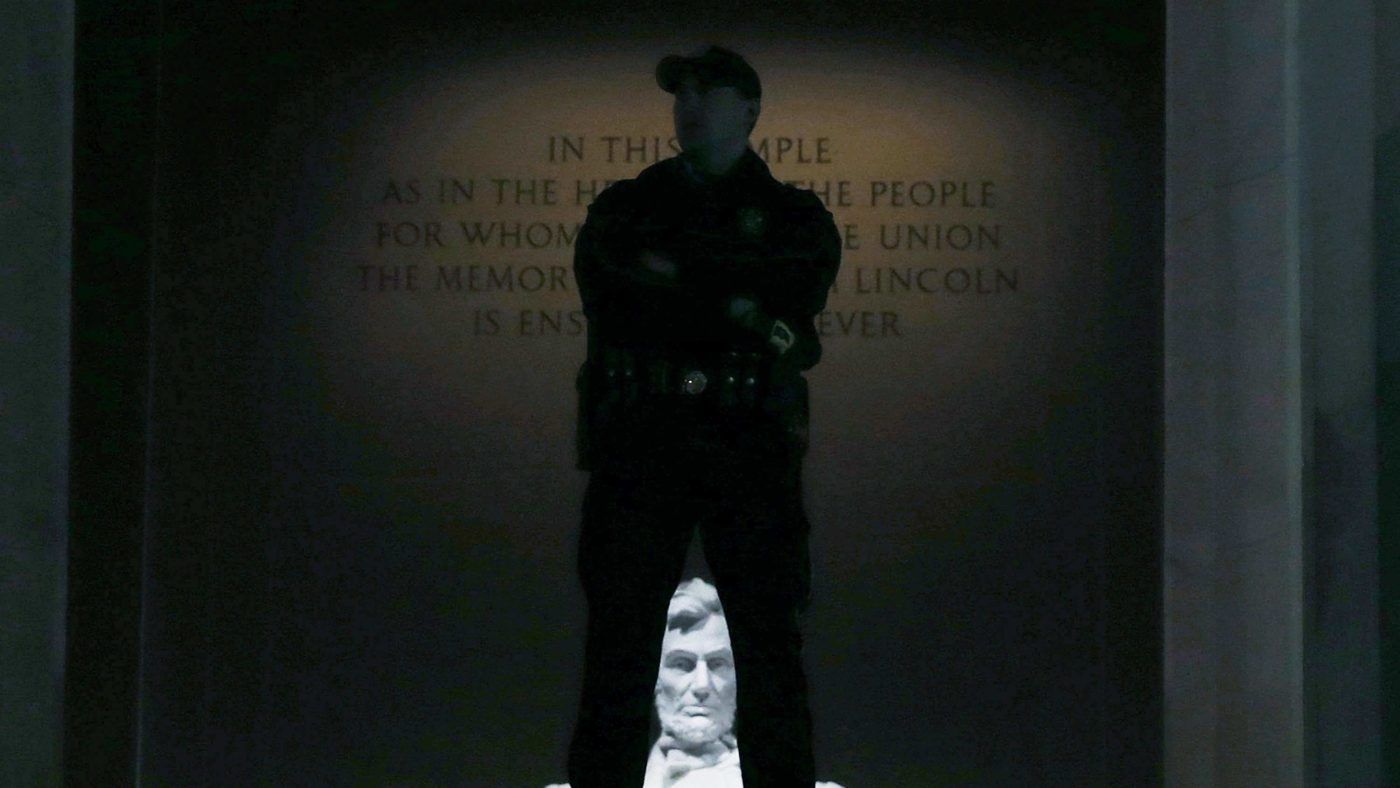Litter scattered on the streets of Washington DC, many thousands of federal workers unpaid, benefits delayed for veterans, and a cost of billions to the economy. These are just a few of the things which could happen if Congress fails to agree on its $1 trillion spending bill by Friday.
Negotiators in the Capitol Hill’s appropriation committees are locked into tense talks over a budget to fund federal agencies for the rest of the year. According to Senate Democratic leader Chuck Schumer, a deal was in sight just days ago. That was before President Donald Trump got involved.
Eager to get onto the front foot after a humiliating defeat on healthcare in March, Trump is desperate to show progress on his election promises. And none are more powerful than the infamous wall with Mexico, which in many ways became the symbol of the President’s 2016 campaign.
Trump pushed forward, demanding that the budget includes a $1.5 billion down payment on the wall’s construction. The Democrats were unmoved, forcing the President into retreat: his spokesperson Kellyanne Conway revealing yesterday on Fox News’s “Fox and Friends” that they would not seek funding this week.
The budget needs 60 votes to clear the Senate. But the Republicans only hold 52 of the 100 seats, which puts the Senate Democrats in control.
In an effort to budge them, Trump and Congressional Republicans have threatened to defund Planned Parenthood and Obamacare subsidies. Unfortunately for them, the Democrats have had every reason to hold firm.
Ultimately, these funding threats are toothless. Schumer and his party know that the Republican leadership will do everything in their power to avoid a repetition of 2013’s disastrous government shutdown.
Not only would the GOP and Trump take the lion’s share of the blame, but the shutdown would begin on his 100th day in office.
The President can downplay the event’s significance all he wants, but the truth is that his administration is losing control of the narrative. Trump branded himself as the businessman candidate who would drain the swamp and bring his deal-making brilliance to Washington DC.
If the government shuts down, this already-faltering story would be shattered.
The economic cost would be huge. When things ground to a halt for 16 days in October 2013, it was estimated to have costed the economy $24 billion, while reducing projected fourth-quarter GDP growth from 3 per cent to 2.4 per cent.
This included the lost productivity of up to 850,000 federal employees off work each day, for a combined total of a staggering 6.6 million days. Meanwhile, small businesses struggled to get much-needed loans.
The list of non-economic consequences was long. Tourists had to be shut out from national parks, the Centers for Disease Control and Prevention (CDC) were forced to halt their seasonal influenza monitoring programme just as the flu season kicked in, and thousands of passports and visa applications could not be processed.
No politician, Republican or Democrat wants to preside over such scenes again. Their responsibility is to govern effectively, and allowing the government to come to a standstill due to their inability to compromise would be deeply embarrassing.
Yet most of the blame and the bulk of the embarrassment, however, would lie with Trump and the GOP leadership, a fact of which the Democrats are well aware.
That is why the President was forced to back down over the wall, and why there will almost certainly be some kind of deal in place by midnight on Friday. According to most reports, this will likely be a temporary agreement tying the budget over until the end of September: when the battle will recommence.
Meanwhile, Trump may be starting to realise that he will need to change tack in order to get anything done.
Last July, he boasted of his unique ability to repair the rigged system, telling the Republican National Convention that “I alone can fix it”. However, with both parties not just at odds with one another but riven with internal conflict, the President will be forced to compromise.
In order to get funding for the wall, Trump will have to give the Democrats something substantial in return. The strategy of threatening to cut off health insurance funding was doomed from the start. While the downpayment for the wall he demanded may be small, the Department for Homeland Security estimates that the border wall would cost around $21.6 billion, with Senate Democrats arguing the figure will be three times larger.
Trump’s other big push in the coming months will be for extremely ambitious tax cuts, which, as things stand, have little promise of ever coming into effect. Despite planning to slash funding for, or altogether abolish, several governmental agencies in areas like the environment and housing to save money, the 15 per cent cuts to corporate tax rates would breach the Senate’s deficit-busting “Byrd rule”, as well as his party’s ideological commitment to cutting the deficit.
While they may be the minority party, the threat of shutdown gives the Democrats the Trump card in their budget negotiations. Even as the President’s party dominates Congress, he is starting to realise that nothing comes for free in politics.


